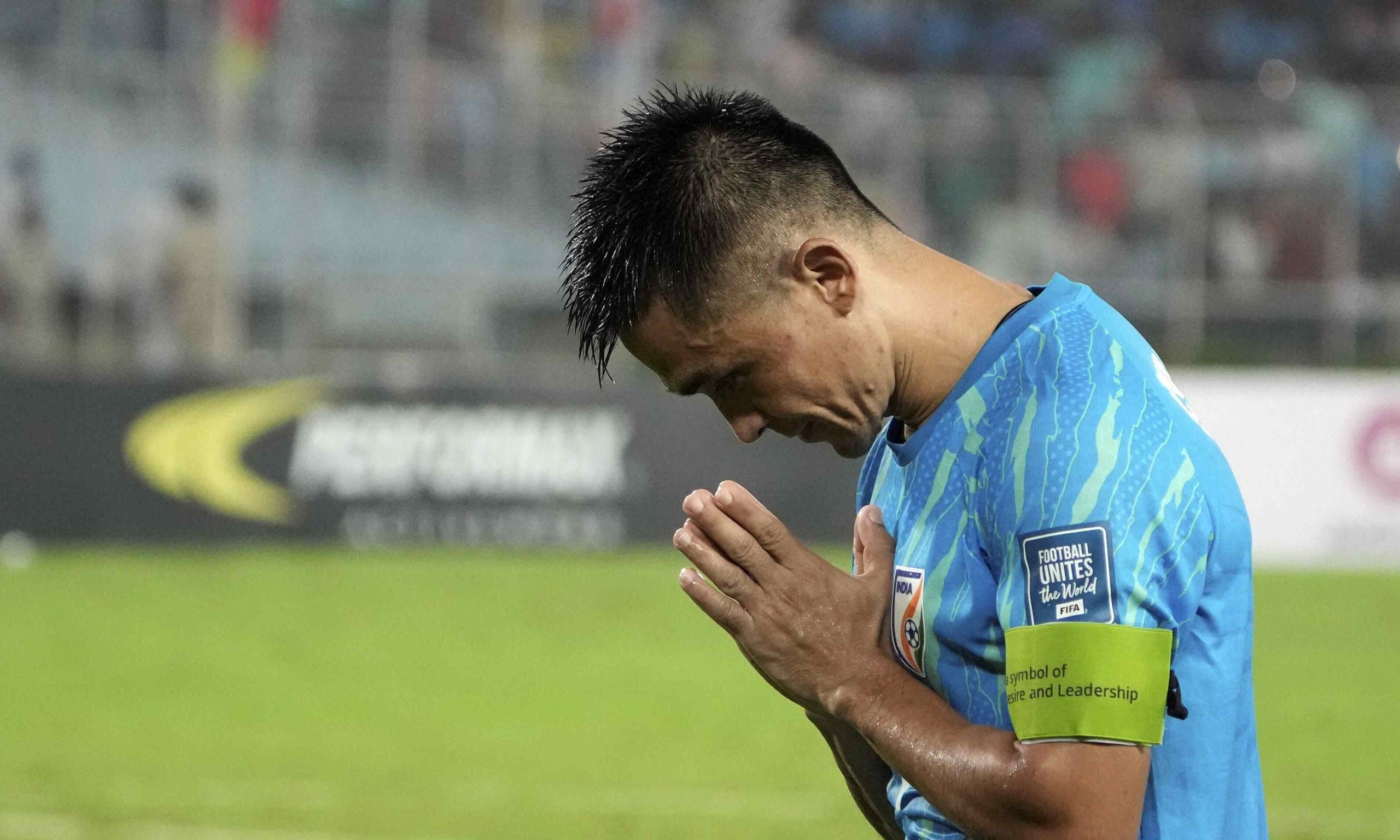When Sunil Chhetri stepped out on the hallowed turf of the Salt Lake Stadium at Kolkata on Thursday night, it was a sight that most fans had dreaded. The final game of their beloved icon.
As unavoidable as the circumstance was, if there was a way that the inevitable could have been delayed, the fans would have gone to the very corner of the earth to pull off a miracle. Sadly, time doesn’t stand still and the maestro had to hang up his boots.
And just as he walked out with his head held high, there wasn’t a moist eye in the stands.
Fortunately, the memories of joy will linger longer in the minds of those that witnessed his journey, one that began at Secunderabad.
Humble beginnings
Sunil Chhetri was born on August 3,1984, in Secunderabad, Andhra Pradesh in a family of sportspersons. Both his parents played competitive football. While his mother, Sushila, played for the Nepalese national team, his father KB Chettri, played football for the Indian army.
Clearly football was in his blood.
Chhetri’s father discharging army duties across the country did not stop young Sunil from playing the sport. He played football for his schools in Darjeeling and Gangtok, where he impressed scouts.
It was at the age of sixteen that the first real breakthrough occurred. It was in Delhi that Chhetri, as a 12th grader, and when playing on an Indian team at the Asian School Championships in Kuala Lumpur in 2001, got heads turning.
His performances at that event opened doors at the Tata Football Academy and subsequently, Chhetri, as a precocious teenager, played the prestigious Durand Cup. Shortly thereafter, he earned a trial with the legendary Mohun Bagan squad, one of Asia’s oldest clubs.
It is said that when the then coach Subrata Bhattacharya watched Chhetri score with a bicycle kick, he called upon the management to waste no time in signing him. That moment marked the beginning of an era.
To know more about Eric Benny, visit here.
Accolades aplenty
Chhetri made his international debut for the Indian National Team, the Blue Tigers, in 2005 against Pakistan. He made an immediate impact and quickly made a name for himself, whilst leading the attack showcasing exceptional skill.
Slowly but surely, he became the backbone of the national squad. Plays were drawn up with him in mind and Chhetri held centerstage and delivered when the chips were down – almost every time.
And in time, his achievements began to speak for itself.
He holds the record for most international goals scored for India, with over 90 goals in more than 140 appearances for the national team. Also, Chhetri now ranks amongst the top goal scorers in international football, rubbing shoulders with legends like Lionel Messi and Cristiano Ronaldo.
And lets not forget that he is a seven-time AIFF Player of the Year – a record that speaks volumes of his talent. Also, Chhetri scored the most number of hat-tricks for India, a feat that earned him the moniker ‘the king of hat-tricks.’
Awards were deservingly bestowed upon him. First the Arjun Award in 2011, then the Padma Shri in 2019 and finally the coveted Khel Ratna Award, the highest honour for a sportsperson in the country.
However, Chhetri’s influence goes beyond mere statistics and awards.
A true leader
From the outset, Chhetri harboured dreams of taking Indian football to the next level, first as a player and later, as the captain and leader of the Indian national team.
As a captain, Chhetri became the face of Indian football, both on and off the field. His dedication, discipline, and sportsmanship earned him immense respect from teammates, opponents, and fans.
Under his leadership, India achieved significant milestones, winning the SAFF Championships on multiple occasions and qualifying for the AFC Asian Cup. Chhetri also connected with the Indian fans in a way that no one had done previously.
Not very many will forget the incident when Chhetri released a rather emotional video calling the fans to support the national team. In response, the ‘Blue Pilgrims’ responded in overwhelming fashion, filling the stands, cheering and celebrating India’s triumphant victory in the Intercontinental Cup.
A lasting legacy
While Chhetri might have called it a day, his exploits will continue to live long in the memory of the Indian football fans. His actions, both on and off the pitch, will serve as a template for the future generation.
After a SAFF Cup victory, Chhetri had said, “No matter who we play, where we play, this team will fight for the badge.” As India continues its battle for World Cup qualification and regional recognition, those words will echo in the hearts of every player that shall carry his mantle going forward.
And long after the highlight reels play out, the images of Sunil Chhetri, punching above his weight and dragging his team in tow, will remain etched in the minds of the Indian fan.
